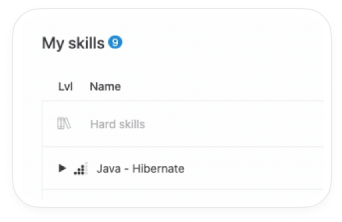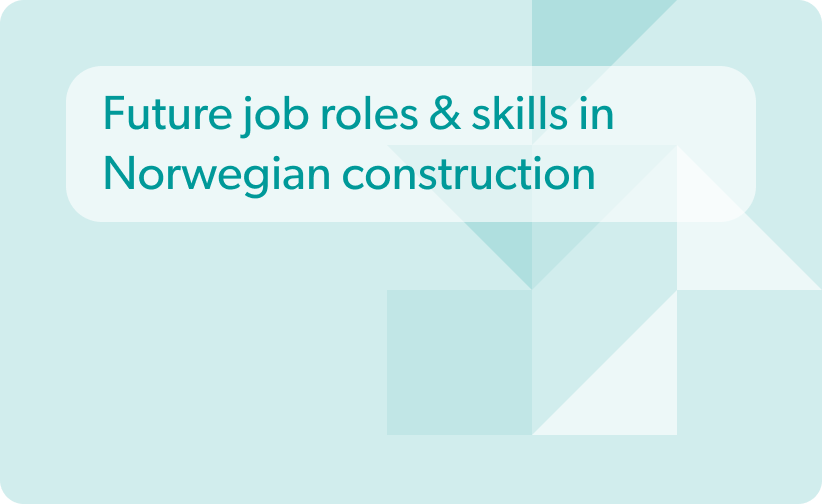5 interdisciplinary skills gaining momentum in 2023 and beyond
Employers are looking for people who can work effectively across disciplines and on teams. Jobs of the future will demand a set of skills that haven’t been required in generations. In this post, we discuss what those skills are and why they’re so important.
Interdisciplinary skills are the key to being a successful worker in many industries, as they allow you to gain an understanding of how people, technologies, and businesses interact. They also make it possible to solve complex problems that arise from these interactions.
When looking at well-payed jobs, it’s easy to see why interdisciplinary skills are so important. They’re not just valuable in fields like medicine or engineering – they can also be applied across industries such as finance, law, and education.
Market research
Market research is a key part of any business, and it’s something every professional should know how to do. Researching the market helps you understand your customers, competitors, and the market as a whole. It can help you find new opportunities for growth in your business or industry.
A good market researcher should be able to:
- Understand the importance of collecting data from multiple sources (surveys, interviews, focus groups) and analyze that data using statistical tools like regression analysis or hierarchical clustering
- Identify trends within their chosen field
- Recommend changes based on research results.
Adaptability
This is the ability to change and adapt to new situations, often requiring people to learn new skills. Adaptability can help employees work well in a team as well as with people who have different personalities and goals. It’s also important when working under pressure: in order to get things done on time, everyone needs to be able to adjust their workflow when things come up unexpectedly.
Ability to lead and work with a team
Management skills are useful in any role that requires managing people, including in technical roles such as software engineering when managing teams of people with different opinions and ideas.
Good managers spend time understanding their staff members’ strengths and weaknesses as well as their own strengths and weaknesses so they can tailor their approach accordingly when communicating expectations or feedback. A good manager also learns how best to motivate everyone under their control so they consistently deliver their best work.
Critical thinking and analytical thinking
Critical thinking and analytical thinking are two sides of the same coin, but they differ in their approach. Critical thinking is about evaluating how you think: for example, looking back at a situation and identifying your assumptions or biases. Analytical thinking refers to the ability to look at information, whether qualitative or quantitative in nature, and recognize patterns in the information.
These two skills aren’t unique to business or technology careers; they’re important in any line of work. But because most businesses today rely heavily on technology, critical thinking and analytical thinking are especially valuable in the fields of business and technology.
Active learning
The skills you learn in school are only valuable if you can use them in the real world. Active learning involves students in the learning process rather than just having them read or listen to information passively. This type of active engagement can help students retain and apply knowledge more efficiently, which is why it’s an important part of any curriculum.
According to results from a study by the National Academy of Sciences, active learning techniques improve learning success rates compared with passive methods such as lectures or traditional group exercises alone. Active learning also helps students better comprehend their subjects and solve problems on their own – two things they’re likely to need as they continue their education after college graduation.
Why are interdisciplinary skills so important?
What are the skills employers are looking for in 2023 and beyond? It’s a big question, but we’ve got some answers. Interdisciplinary skills will be a requirement for jobs of the future. They’re going to be more important than ever because they allow people to solve problems and make decisions in an increasingly complex world.
If you’re looking for ways to develop these skills, here are some tips:
- Learn another language. Knowing more than one language can help you communicate with people from different cultures and backgrounds. Learning a second language also gives you insights into how languages work, which can be useful if you want to become a translator or codebreaker.
- Study the humanities. Studying history, literature, philosophy, and other subjects in the humanities can help you think critically about the world around you. This is particularly useful if you want to develop an understanding of social issues and how people interact with each other.
- Get involved in your community. Volunteering and getting involved in local activities is a great ways to develop new skills and meet new people who can help you with your career. It also helps you gain valuable experience you can share on your CV when applying for jobs.
- Listen to podcasts and audiobooks. Listening to podcasts and audiobooks is a great way to learn new things while doing something else, such as commuting or exercising. If you’re short on time, try listening while doing something else instead of reading a book.
- Keep up with current affairs. Keeping up with the latest news and events in your area of interest will help you keep up with developments in your industry and enable you to apply this knowledge at work.
To recap
While we can’t guarantee that jobs of the future will require interdisciplinary skills, recent trends suggest it’s likely. The better you develop these skills now, the better you’ll be suited for a variety of future careers.
Moreover, many people report feeling fulfilled by work that requires them to draw from knowledge and skills across several fields. Your success depends on your ability to think outside the box and see how seemingly unrelated fields connect with each other – so try to develop these kinds of connections in everything you do.
Stay up to date with our newsletter
Every month, we’ll send you a curated newsletter with our updates and the latest industry news.


























 info@hrforecast.de
info@hrforecast.de
 +49 89 215384810
+49 89 215384810






